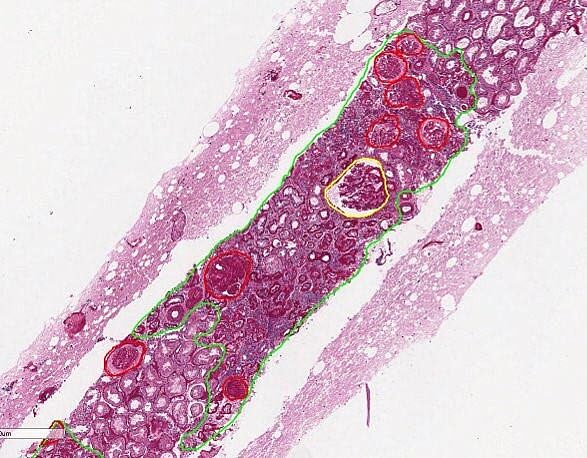UF Health researchers developing AI system aimed at improving kidney transplant outcomes

For people needing a kidney transplant, there has long been a sobering reality: The demand for usable organs falls well short of the supply. Now, University of Florida Health researchers and their colleagues are deploying artificial intelligence to help improve transplant outcomes.
UF Health researcher Pinaki Sarder, Ph.D., and his collaborators this month were awarded a $2.8 million, five-year grant to investigate how AI can better predict transplant results by rapidly analyzing kidney tissue samples and combining the samples with other patient data. The deficit of available kidneys makes improving outcomes for first-time transplants especially important, Sarder said.
The intent is to develop a system that uses AI tools to build autonomous models that can diagnose, predict and help physicians better manage patients’ care for the long term. Being able to precisely predict future problems with kidney transplants and pivot to optimal treatments could significantly reduce transplant rejections, Sarder said.
An AI-powered system for assessing kidney biopsies has several potential advantages: It can pore over massive numbers of slides, freeing up physicians to do other important work while also making the process of evaluating images more consistent.
“Our challenge is to develop a system that gives doctors the most consistent medical information so they can make the best, most informed decisions,” said Sarder, an associate professor of AI in the College of Medicine’s department of medicine and associate director of imaging for UF’s Intelligent Critical Care Center.
To do that, the researchers will build a system that integrates high-resolution kidney transplant biopsy images with demographic and medical data from kidney donors and recipients. AI will be used to analyze all that, driving models that can help better manage transplants for the long term.
More specifically, the team will work on an AI tool that can automatically quantify chronic injuries or other problems in donor kidneys. AI will also be used to create a way to predict how well those transplanted organs will function in the future.
Sarder, an expert in computational kidney pathology, has already developed a tool to quantify two chronic conditions that commonly occur in kidney transplant patients. That tool will be expanded to include more analyses. To establish its effectiveness, the tool’s performance in predicting future kidney function will be compared with existing methods used by physicians.
Collectively, the research will be extremely valuable to physicians because it gives them access to large collections of kidney transplant biopsy images, Sarder said. That, in turn, can drive better and more informed treatment decisions for kidney transplant patients.
“At the end of the study, we’re going to know whether predicting future kidney function is better with AI than it is with existing clinical methods — or if it’s about the same,” Sarder said.
Sarder will be joined in the effort by researchers from the UF departments of surgery, medicine, and health outcomes & biomedical informatics as well as the University of California, Davis; the University of California, San Francisco; Johns Hopkins University; and the University of Coimbra in Portugal. Funding is being provided by the National Institutes of Health.
About the author
